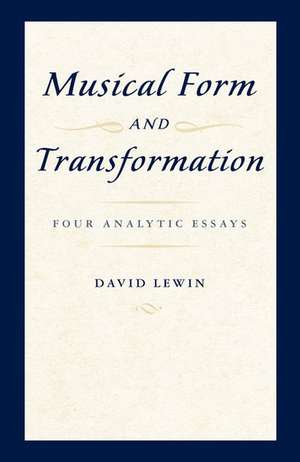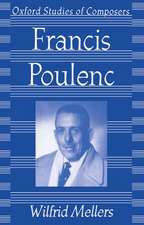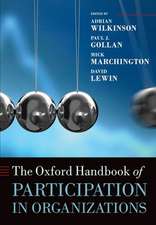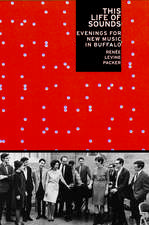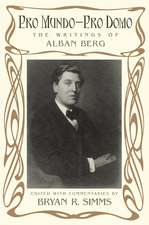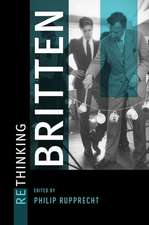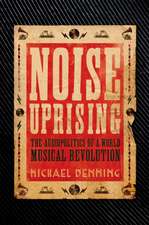Musical Form and Transformation: Four Analytic Essays
Autor David Lewinen Limba Engleză Paperback – 13 ian 2011
| Toate formatele și edițiile | Preț | Express |
|---|---|---|
| Paperback (1) | 270.90 lei 31-37 zile | +47.21 lei 4-10 zile |
| Oxford University Press – 13 ian 2011 | 270.90 lei 31-37 zile | +47.21 lei 4-10 zile |
| Hardback (1) | 369.71 lei 31-37 zile | |
| Oxford University Press – 3 mai 2007 | 369.71 lei 31-37 zile |
Preț: 270.90 lei
Preț vechi: 302.06 lei
-10% Nou
Puncte Express: 406
Preț estimativ în valută:
51.84€ • 54.26$ • 43.14£
51.84€ • 54.26$ • 43.14£
Carte tipărită la comandă
Livrare economică 20-26 martie
Livrare express 21-27 februarie pentru 57.20 lei
Preluare comenzi: 021 569.72.76
Specificații
ISBN-13: 9780199759958
ISBN-10: 0199759952
Pagini: 192
Ilustrații: 80 musical examples
Dimensiuni: 152 x 229 x 11 mm
Greutate: 0.28 kg
Editura: Oxford University Press
Colecția OUP USA
Locul publicării:New York, United States
ISBN-10: 0199759952
Pagini: 192
Ilustrații: 80 musical examples
Dimensiuni: 152 x 229 x 11 mm
Greutate: 0.28 kg
Editura: Oxford University Press
Colecția OUP USA
Locul publicării:New York, United States
Recenzii
No one can match David Lewin's ability to present detailed analyses of 20th-century music in such a way that the committed reader can absorb them in all of their richness. Beyond their originality and interpretive mastery, these essays are indispensable for their stylistic qualities.
David Lewin's great gift was his ability to connect sophisticated mathematics to musical experience in ways that were deeply compelling, never losing sight of either the music, or the experience. Together these two volumes display both his theoretical brilliance and his sensitivity to the individuality of musical works. Most significantly, they are imbued with his unflagging dedication to and abiding love for the acts of making and understanding music.
David Lewin's work is among the most important on music theory in the twentieth century. Through some of the examples of practical applications, Generalized Musical Intervals and Transformations was the inception and theoretical basis of the 'Neo-Riemannian' strand of tonal music theory. In addition, its transformational network analysis paradigm has become part of every music theorist's standard repertory for analysis, and has since been extended by Lewin himself, Klumpenhouwer, Lambert, Stoecker, Headlam, Rahn, and Mazzola among many others. The analytical essays in Musical Form and Transformations illustrate the new analytical paradigm Lewin introduced in Generalized Musical Intervals and Transformations. These seminal works on music theory are essential reading.
While David Lewin's thought had been animated for decades by some of these books' ideas---the complex significance of interval, the audibility of pitch-class inversional indices, the definition of directed motion more by context than convention---it was their concentrated presentation here that enabled many readers to assimilate them as a 'theory.' The result was a shift in the discipline's conception of its methods, even its goals, to the point where imitation of the books (of their imitable aspects) could become a career path. In a renewed encounter with the originals, we are confronted once more by Lewin's intellectual probity, his intense concern with every construction's relation to hearing (which need not mean anything so simple as that every construction is heard), his fastidious eschewal of hype. With these taken as exemplary, the field would change again.
David Lewin's great gift was his ability to connect sophisticated mathematics to musical experience in ways that were deeply compelling, never losing sight of either the music, or the experience. Together these two volumes display both his theoretical brilliance and his sensitivity to the individuality of musical works. Most significantly, they are imbued with his unflagging dedication to and abiding love for the acts of making and understanding music.
David Lewin's work is among the most important on music theory in the twentieth century. Through some of the examples of practical applications, Generalized Musical Intervals and Transformations was the inception and theoretical basis of the 'Neo-Riemannian' strand of tonal music theory. In addition, its transformational network analysis paradigm has become part of every music theorist's standard repertory for analysis, and has since been extended by Lewin himself, Klumpenhouwer, Lambert, Stoecker, Headlam, Rahn, and Mazzola among many others. The analytical essays in Musical Form and Transformations illustrate the new analytical paradigm Lewin introduced in Generalized Musical Intervals and Transformations. These seminal works on music theory are essential reading.
While David Lewin's thought had been animated for decades by some of these books' ideas---the complex significance of interval, the audibility of pitch-class inversional indices, the definition of directed motion more by context than convention---it was their concentrated presentation here that enabled many readers to assimilate them as a 'theory.' The result was a shift in the discipline's conception of its methods, even its goals, to the point where imitation of the books (of their imitable aspects) could become a career path. In a renewed encounter with the originals, we are confronted once more by Lewin's intellectual probity, his intense concern with every construction's relation to hearing (which need not mean anything so simple as that every construction is heard), his fastidious eschewal of hype. With these taken as exemplary, the field would change again.
Notă biografică
Over his 42-year teaching career, David Lewin taught composition, with an increasing focus on music theory, at the University of California at Berkeley, the State University of New York at Stony Brook, Yale University, and finally at Harvard University. Among his music-theoretic writings are many articles and books, including Generalized Musical Internvals and Transformations (Yale, 1987) and Studies in Music with Text (posthumous, Oxford 2006). He was the recipient of honorary doctoral degrees from the University of Chicago, the New England Conservatory of Music, and the Marc Bloch University, Strasbourg, France, for his work in music theory.
